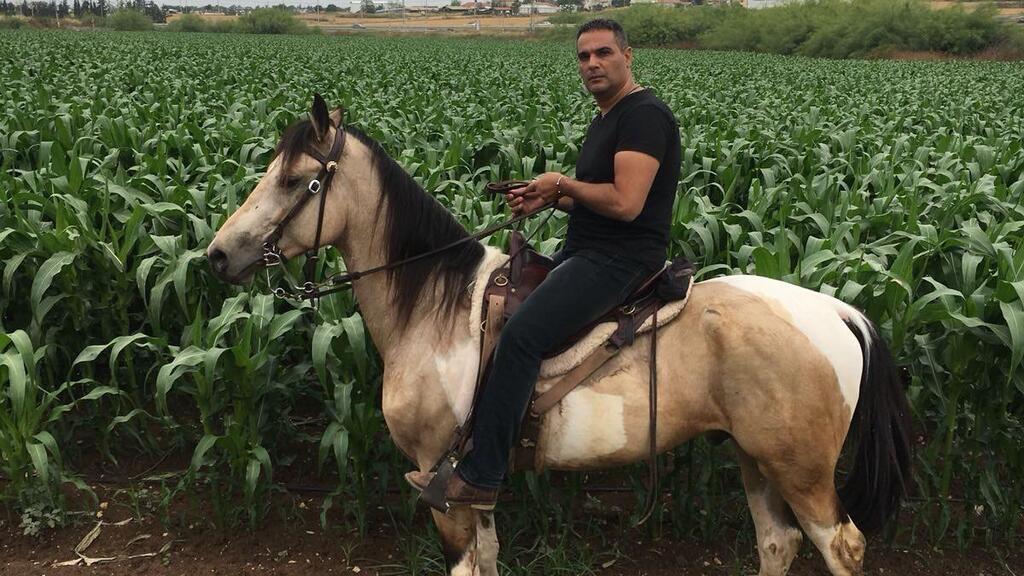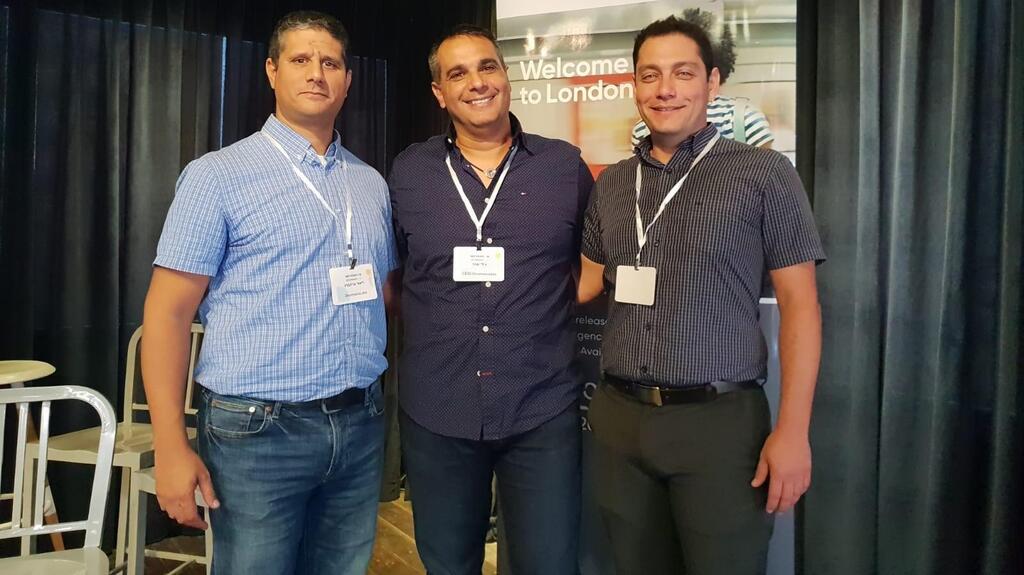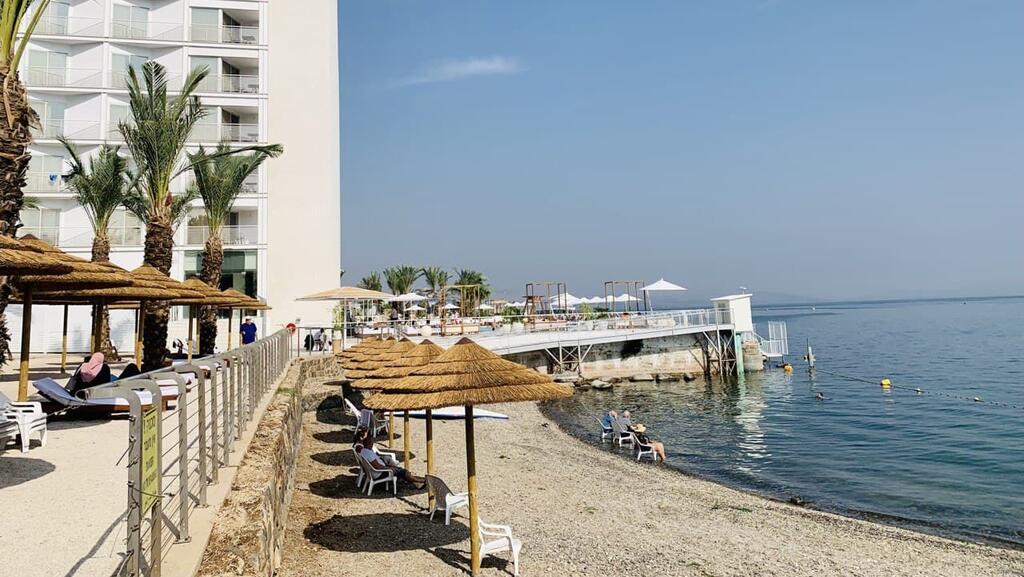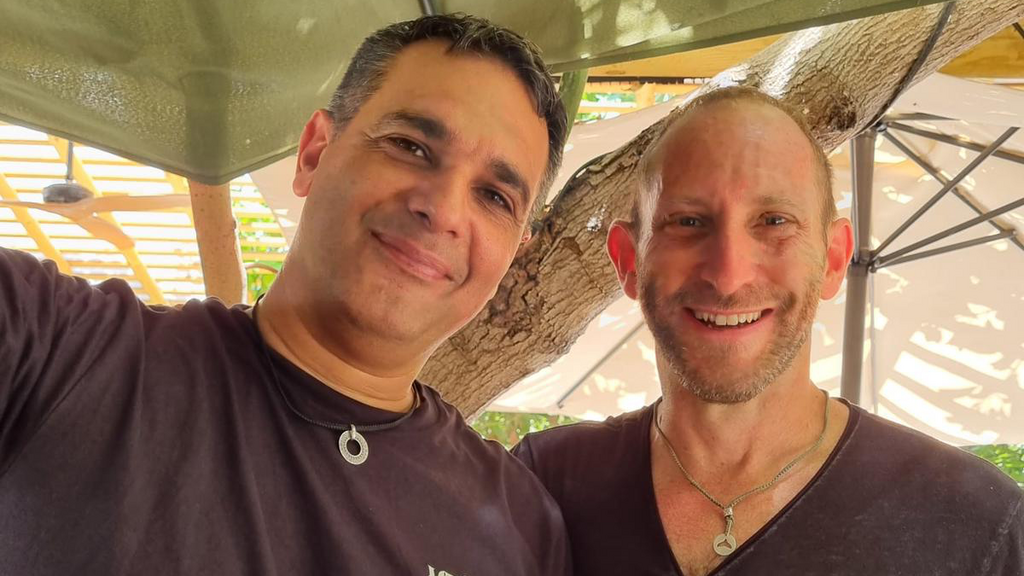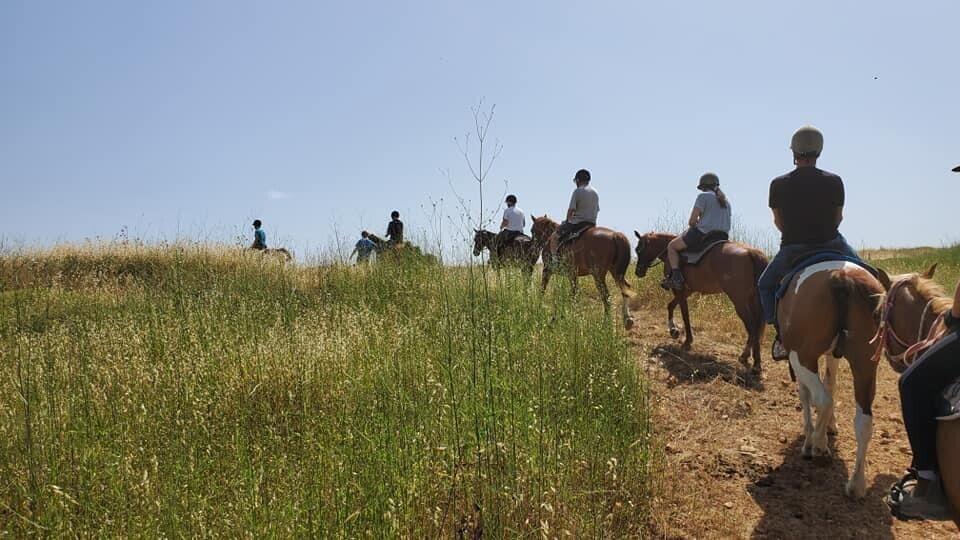Getting your Trinity Audio player ready...
Seven years ago, Dicomano Labs CEO Gili Sahar - then the company owner - was sitting in a branch of Bank Hapoalim trying to correct a banking error on a company project.
“I was in a meeting at the bank. I was sitting there with my people when I saw a text message," he recalls. “I opened up the message and I just saw lots of zeros on an amount deposited in my account. It took me a moment to understand that I’d made my first exit. My company had been bought. The 12-million-shekel bank transfer now confirmed it.”
Just like that? No warning? What do you do at a moment like that?
“I was obviously very excited, but I didn’t let it show. It was the last step in selling our SAP (Systems Applications and Product) to ONE1, a public IT company, which also purchased part of ServiceNow operations. The deal was finalized a few months earlier, but the money was only transferred after approval by the Antitrust Commissioner.
"I looked at the message, took a screenshot, and sent it to my family. I then closed the message and carried on with the meeting as if nothing had happened. When it was over, I told the company employees. That was the first time in my life that I had anything to do with money.
"I got a huge amount for what I’d created through hard work and I felt that I’d ‘made it’. I was also thrilled for my employees, who’d been with me all the way. I was happy to have touched the lives of each and every one of them. That’s how I felt with all the exits that followed. I really mean it.”
Gili Sahar was born in Tiberias. At the age of 32, with Avi Mishan he founded his first company, Dicomano, named after a village in Tuscany, Italy. The company develops advanced accessories for ERP-SAP.
He’s been working tirelessly ever since, setting up a series of companies, including Dicomano Labs Ltd., which operated as a business partner with SAP Israel providing tech advice for SAP products. In 2012, he started up further operations within Dicomano Labs – ServiceNow, including a business partnership selling program licenses and project implementation, which as mentioned above, was sold to ONE1 in 2016.
In 2020, he sold his part of ServiceNow to ONE1. He self-funded setting up Rubicone Source Ltd. as a business partner for Red Hat. Two months ago, for several million shekels, he sold 60% of his shares in Rubicone which works to accelerate digital transformation in organizations to Abra Information Technologies Ltd., a publicly owned company.
Do you think the magic of the Sea of Galilee contributed to your passion for business?
He laughs. “Look, a lot of great, talented, and influential people have come out of Tiberias. It pains me to admit that a lot of them, myself included had left the city – but that’s how we’ve grown. Although I haven’t lived in Tiberias for many years, the north of the country is central to my life. My parents and much of my family are still there and I’m married to a classmate.
"We’ve been together since 8th grade. Sadly, it’s no longer the same city we grew up in. Like the rest of the world, it’s changed, but it’s still the same scents and the same people. I get emotional just talking about it. That’s why I bought a large house overlooking the Sea of Galilee in Had Ness in the Golan Heights.
"My brother lives there. He’s a cowboy. We often spend our weekends there. I also have a large ranch with 28 horses. At the end of the day, I’m a man of the land. I’m completely there and, when I go back to work, I’m completely in the center of the country.”
How do you make the transition from the quiet of the Golan to the noisy lifestyle in the center of the country, with the demanding and competitive atmosphere of the company owner and CEO?
“It’s no trouble for me. I’m a bit of an odd duck. This is how everyone knows me.”
He tells us that he wasn’t good at school. His grades weren’t good enough to get him into a Law School - so his first dream of becoming a lawyer came to nothing. “Looking back, I was lucky not to be accepted. I studied Communications, my second choice, at the College of Management Academic Studies (COLMAN) Tel Aviv.”
At some stage during his studies, he understood that Communication wasn’t really what he was looking for. At COLMAN, he’d spend time with Yariv Ben Eliezer, the dean of the college’s School of Communications academic track.
“Talking to him, I realized that what I loved was matters of the mind and a Behavioral Sciences department had just opened at the college. I remember our conversations in the cafeteria. We’d talk about life, politics, and Tiberias. He then told me that Behavioral Science was exactly right for me.
"When I saw the syllabus, I knew he was right. I’ve always been a people person and the course subjects looked interesting. I attended all the lectures and completed all the assignments. I was really into it. I graduated from the BA program and started working.”
He tells us that in 1997, he started his first ever serious job at Sela Software Labs Ltd. “Sela CFO, Ofer Alshech, knew me and offered me a job there. At the time, I didn’t really feel comfortable in the computer world and it even put me off. Ofer talked me into it though. He could see what I couldn’t.
"It was during the Dot-com bubble. I found myself learning, hardware, networks and programming. While working there, I met and interviewed a lot of Sela’s college alumni and I placed them in hi-tech companies. That’s how I started out. I loved interviewing people and really getting into their minds. In time, I developed good relationships with the companies themselves.“
Then the Dot-com bubble burst. “I was very sad. A lot of people I’d brought in lost their jobs. I found it quite traumatic. Then, at the end of 2001, I received an offer from Danshir Software in Ra’anana. When I think about by career track, I realize that life has brought me to where I am today.
"Much of it has been by chance. Although I don’t believe in fate, I think there’s something behind chance, that there’s a guiding hand. At Danshir, I started working on whatever projects the company was offering the market.
“I worked with big clients like Amdocs and Teva and I found I liked it. I sold a lot of SAP and I was good at it. This brought me to the next offer from Taldor Computer Systems – an IT company offering business and technological solutions for programming hardware and infrastructure.
"I managed their SAP operations. After two and a half years, I‘d created a lot of new jobs. When I hit 40, I felt it was time for a change.”
What do you mean “it was time for a change?"
“I wanted to start making it on my own. I decided to open my own company. By then, I was very familiar with SAP and I understood the clients and where I could include special operations giving the company a competitive advantage. I set up a company with Avi Mishan who was a good friend. That’s how Dicomano got started."
"Within two years, we had 50 people working at the company which didn’t even have offices. I’d hold work meetings in cafés. We’d sign on new employees on napkins. I was afraid that people wouldn’t want to work for us as we weren’t offering glitzy conditions like other IT companies.
"Clients I knew from the industry believed in us and gave us work. This was our ‘Blue Ocean Strategy’. My method has always been getting to know the client really well. Deals only come about through relationships.”
Sahar is widely viewed as a bit of an odd duck. Over the years, he’s developed his own method of recruiting employees, who despite aggressive competition in the industry, remain working in his companies for extended periods.
Even today, he doesn’t have a real office and he doesn’t have a computer. He does all his work on his phone. Even though he completely trusts his own CEOs and personnel managers, he attends each and every recruitment interview.
How do you feel about being called an odd duck?
“I’m proud of it. I have my reasons,” he says with a smile. “Firstly, unlike many of my colleagues, I don’t see business as a short-term thing. I’m running a marathon, not a sprint. Take Rubicone which I founded in 2021: I very quickly received an offer to sell the company. Ignoring the advice of those around me, I turned down the offer."
"I didn’t feel the company was ready to sell. I don’t agree with the aspirations of lots of tech and start-up companies of growing very fast. We’re now seeing the outcome of these mistakes. I also think that I have the lowest IQ in my companies, but the highest EQ.”
You can’t be serious
“Definitely. I always tell my employees that they have a very high level of intelligence, skills, and abilities, but that I want to work with them on their soft skills. That’s our competitive advantage. Intelligence isn’t enough. I want people who are communicative, who like building narratives, who people follow.”
You are proof that one can make it in high-tech, even without starting out from a very good place. You were born in the country’s periphery, you weren’t good at school, you served in the Artillery Corps and didn’t study a relevant degree in a respected academic institution
“Everything you’ve said is correct. I served in the Artillery Corps, not in Unit 8200 [the Military Intelligence Directorate's main information gathering unit]. I live in Tiberias, not in Tel Aviv, and I ride horses, not bicycles while wearing spandex leggings. At the weekend, I drive around in a pick-up truck, not a sports car. But I’m stubborn and determined. I believe in my product and I follow my dreams.”
You’ve sold your companies. What’s next?
“I’ve set up a portfolio of three or four companies. The difference is that I won’t be the CEO of these companies, but rather their founder. The CEOs will get shares and will manage operations and I’ll manage from above. I’ll be an active company chairman, funding and directing strategy, networking and making connections.
“I’ll continue with the method of founding and managing companies that I’ve developed over the years. It’s totally proved itself. I’m currently in the process of purchasing a company that creates an advanced product and has 30 employees. I hope the acquisition will be complete by May.
“I’m also a member of a team developing an advanced American cyber product. Even if the acquisition doesn’t come through, I’ll keep going with my strategy. I believe that by the end of 2023, I’ll own new companies.
“Although a lot of people are telling me that it’s not the time to buy new companies, I think the opposite is the case. It’s a perfect time as I don’t need investors. I self-fund my companies.”
We cannot not talk about the horses. Where’s that from?
“I can’t explain everything. I grew up in a city and the only horse I remember from when I was a kid was tied to the rags and bones cart. For me, that crooked horse was the noblest of horses. I spent all the money I received upon my military discharge to buy my first horse.
"My room is full of pictures of horses. It’s hard to describe how I feel when I’m in a stable in the Golan Heights. Horses are creatures full of contradictions: They’re strong and forceful, but they’re also so gentle they can sense you. Horses are amazing, sociable animals. I name all my horses. The mare I bought last week, I called ‘Blues.'”
Blues? That sounds sad
“True. It was raining when I went to buy her and I saw her standing there in the stable and that’s the name that came to me.“


